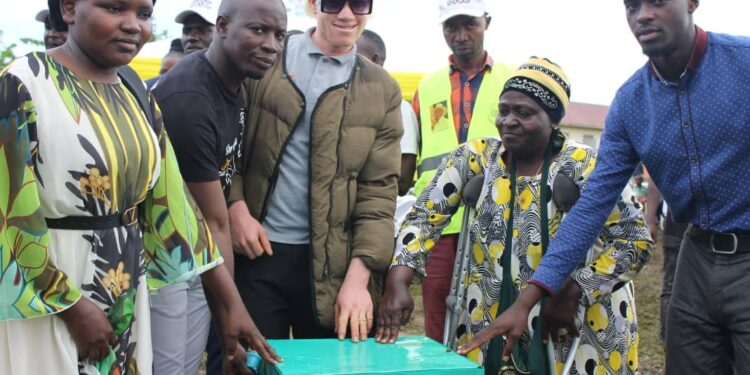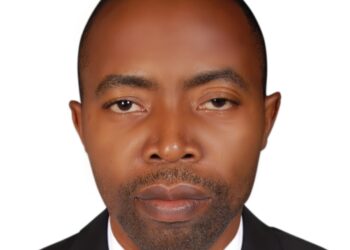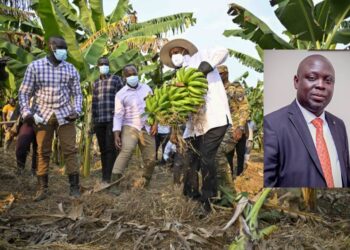The Uganda Bureau of Statistics 2023 report shows the levels of Poverty at 30% for Ugandans living below the poverty line. However, the World Bank statistics, in 2023 rated the level of poverty in Uganda at 41.7 %.
Poverty is a pronounced deprivation in well-being. The poor are those who do not have enough income or consumption to put them above some adequate minimum threshold. The United Nations refers to it as insecurity, powerlessness, and exclusion of individuals, households, and communities.
Despite the consistent approaches taken by the Government of the National Resistance Movement under HE Gen. Yoweri Kaguta Museveni, Poverty continues to be a challenge in Uganda especially among the youth termed as the Bazzukulu resulting from unemployment. Amidst a mixture of vigorous political aspirations in Uganda, President Museveni has proved to be a consistent and adaptive leader in prioritizing the need to battle poverty out of the household.
Numerous schemes such as Entandikwa, Operation Wealth Creation, Emyooga, etc. have been fronted as sure strategies to check out Poverty and currently with the Parish Development Model as the main vehicle to drive the 30% of the households out of the bondage of Poverty. Since the launch of the PDM in February 2022, a total of 590.2 billion has been disbursed to all the 10,459 Parishes nationwide with a breakdown of Ugx 50 million per Parish by last year in June 2023. The FY 2023/2024 budget nearing its last quarter allocated Ugx 1.1 trillion to achieve the target of Ugx 100m planned per parish across the country.
Even though the above amazing initiative was invented, peasants are decrying discrimination in; the selection processes for beneficiaries, and accessibility of the PDM funds with some wholly ignorant about the PDM program. The bureaucracy in accessing the funds and poor project evaluation techniques for funding is a strong complaint from the registered beneficiaries. In some parts of the country for example Iganga District; Eastern Uganda, women have voiced high rates of corruption at the lowest of Ugx 50,000 solicited from them for inclusion on the beneficiaries’ list, addition to deduction of a certain amount at the payment stage when funds are deposited to individual accounts at the bank.
For simple calculations, a beneficiary of PDM uses about Ugx 300,000 in the whole process (documentation, meetings, transportation, registration, etc.) to get the 1 million share from PDM. For the Politicians at the Local Leadership, the majority have abandoned participation in monitoring the PDM with reasons of lack of facilitation to carry on the task. This all is constraining the excellent PDM program to achieving the intended goal of eradicating poverty in the household.
President Museveni reiterates in his speeches the need for Ugandans to adopt practical strategies for addressing poverty in the Household. The Statesman President Museveni, implores the Bazzukulu to acquire skills to be able to produce goods and services to profit from the already secured wide Market internally and externally.
We have seen his determination in skilling the Bazzukulu under the Presidential Industrial Hubs Initiative, empowerment effected across the 19 skilling Centers country-wide with a concentration in Uganda’s Capital; Kampala which has nine (9) skilling centers. The tremendous skilling approach runs under a budget of Ugx 60 billion (FY 2023/2024) and is also beefed up by the Bazzukulu empowerment projects managed by the Senior Presidential Advisor-Political Affairs Hajjat Hadijah Namyalo Uzeiye Head of the Office of the National Chairman NRM, who reaches the household to identify the right beneficiaries for support with easy cash generating items.
These Capital Items; sewing machines, brick-making machines, G-Nuts grinders, popcorn machines, welding machines, etc. distributed to organized and skilled Bazzukulu have been received positively by the population and commended by economists as a more sure approach to generate a productive Bazzukulu generation than the complex Parish Development Model.
In an interaction with Kajubi Steven, he disclosed that he had changed his livelihood after receiving a Popcorn Machine from the Office of the National Chairman NRM. He saves Ugx 10,000 daily of the profits after sales. This introduces us to the fact that Bazzukulu are more substance in production if supported with capital equipment to generate income than hard cash which can be easily diverted to meeting other personal needs. The non-bureaucratic mechanism for benefit used by Hajjat Namyalo’s team relieves stress from mainly the Bazzukulu and Women who had shunned government programs as regards Wealth and Job Creation.
The needs for financial support by the peasants from the government vary according to the magnitude of their projects. For example; To start up a Chapatti stall costs around Ugx 200,000 and Ugx 500,000 for a Popcorn making machine. Think about the power of change the Ugx 1 million of the PDM can do to change the livelihoods of the Bazzukulu in the different ghettos and those graduates stricken by poverty.
The Parish Development Model has seven pillars though the Financial Inclusion pillar fronts since it is the solution to increasing the purchasing power of the peasants at the Parish Level. It is a fact that Parish Chiefs with the backup of District Commercial Officers and other government agents have diverted these funds for self-benefit through the creation of ghost beneficiaries, planting relatives as Parish Chiefs to serve as disciples for their long rich embezzlement of public funds.
These mafias are exceedingly blessed by the politically confused youth population which has been made to think that President Museveni who doubles as the National Chairman of the NRM is responsible for their plight. But if we may ask ourselves, how many times do you see the President at your Parish selecting the beneficiaries? How numerous does he sit in parish meetings to check if each one of the approved beneficiaries is a resident of that very parish? Why would local councilors refuse to take part in monitoring the PDM until they are included for benefit with a monitoring allowance? Answering those questions and more others of them can awaken the population to the reality of taking the forefront to save the PDM vehicle from the hands of self-seekers.
There is a strong public opinion that the approach of Hajjat Namyalo-ONC of providing quality capital items to identified households after a needs assessment can revive the excellent PDM program from the death line it took. There is also a need to establish a people-intelligence network within the Parish to check on the works of the PDM committee headed by the Parish Chiefs as technical officers.
H.E Gen. Museveni’s people-centered approach not only earned his NRA/M rebel group victory in 1986 but can ably jump-start many of the off-truck poverty alleviation strategies to strongly eradicate the poverty levels at the household.
Do you have a story in your community or an opinion to share with us: Email us at editorial@watchdoguganda.com













